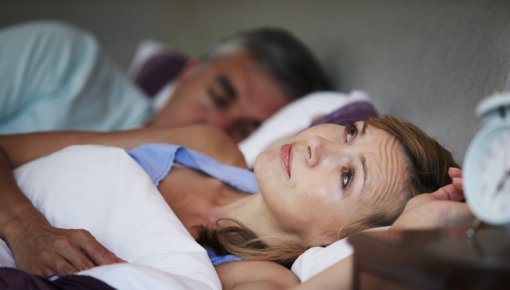Alessi C, Vitiello MV. Insomnia (primary) in older people: non-drug treatments. BMJ Clin Evid 2015: 2302.
Bruni O, Novelli L. Sleep disorders in children. BMJ Clin Evid 2010: 2304.
Deutsche Gesellschaft für Allgemeinmedizin und Familienmedizin (DEGAM). Insomnie bei Erwachsenen. DEGAM-Anwenderversion zur S3-Leitlinie „Nicht erholsamer Schlaf/Schlafstörungen“. AWMF-Registernr.: 063-003. 2017.
Edinger JD, Arnedt JT, Bertisch SM et al. Behavioral and psychological treatments for chronic insomnia disorder in adults: an American Academy of Sleep Medicine systematic review, meta-analysis, and GRADE assessment. J Clin Sleep Med 2021; 17(2): 263-298.
Galland BC, Taylor BJ, Elder DE, Herbison P. Normal sleep patterns in infants and children: a systematic review of observational studies. Sleep Med Rev 2012; 16(3): 213-222.
Institute for Quality and Efficiency in Health Care (IQWiG, Germany). Internet- or mobile-based cognitive behavioral therapy for insomnia. Evidence report for the S3 guideline on non-restorative sleep/sleep disorders – Insomnia in adults . Commission V20-07A. 2021.
Institute for Quality and Efficiency in Health Care (IQWiG, Germany). Cognitive behavioral therapy for insomnia. Evidence report for the S3 guideline on non-restorative sleep/sleep disorders – Insomnia in adults; Commission V20-07B 2021.
Jespersen KV, Pando-Naude V, Koenig J et al. Listening to music for insomnia in adults. Cochrane Database Syst Rev 2022; (8): CD010459.
Ohayon MM, Carskadon MA, Guilleminault C, Vitiello MV. Meta-analysis of quantitative sleep parameters from childhood to old age in healthy individuals: developing normative sleep values across the human lifespan. Sleep 2004; 27(7): 1255-1273.
Riemann D, Baum A, Cohrs S et al. S3-Leitlinie Nicht erholsamer Schlaf/Schlafstörungen. Kapitel „Insomnie bei Erwachsenen“, Update 2016. AWMF-Registernr.: 063-003. Somnologie 2017; 21(2): 2-44.
Schlack R, Hapke U, Maske U et al. Häufigkeit und Verteilung von Schlafproblemen und Insomnie in der deutschen Erwachsenenbevölkerung. Ergebnisse der Studie zur Gesundheit Erwachsener in Deutschland (DEGS1). Bundesgesundheitsbl Gesundheitsforsch Gesundheitsschutz 2013; 5/6: 740-748.
Schwabe U, Ludwig WD. Arzneiverordnungs-Report 2020. Berlin: Springer; 2020.
IQWiG health information is written with the aim of helping people understand the advantages and disadvantages of the main treatment options and health care services.
Because IQWiG is a German institute, some of the information provided here is specific to the German health care system. The suitability of any of the described options in an individual case can be determined by talking to a doctor. informedhealth.org can provide support for talks with doctors and other medical professionals, but cannot replace them. We do not offer individual consultations.
Our information is based on the results of good-quality studies. It is written by a team of health care professionals, scientists and editors, and reviewed by external experts. You can find a detailed description of how our health information is produced and updated in our methods.

